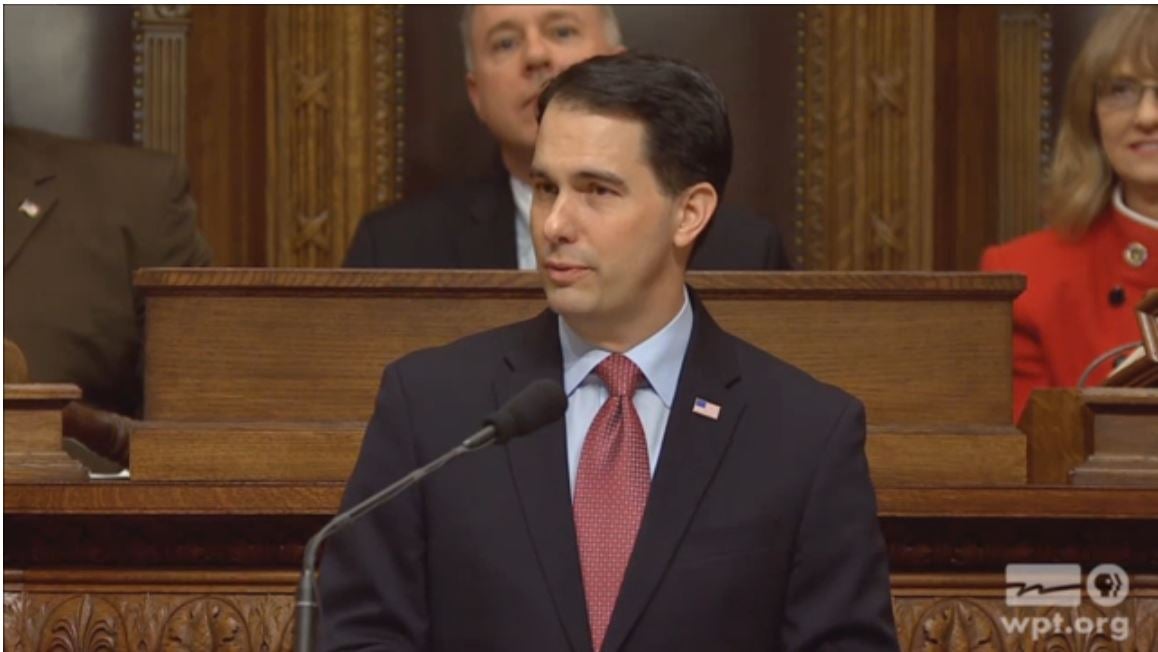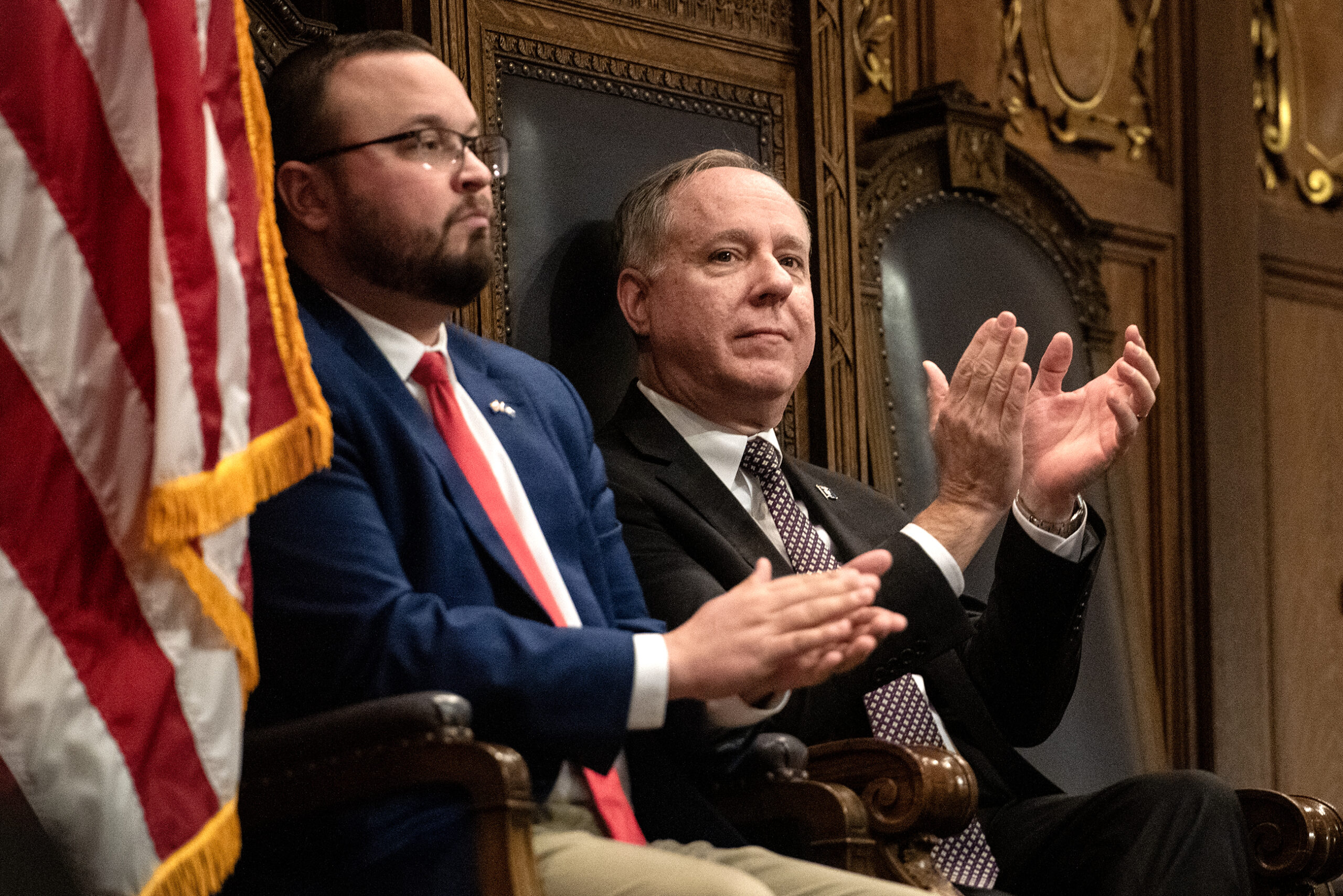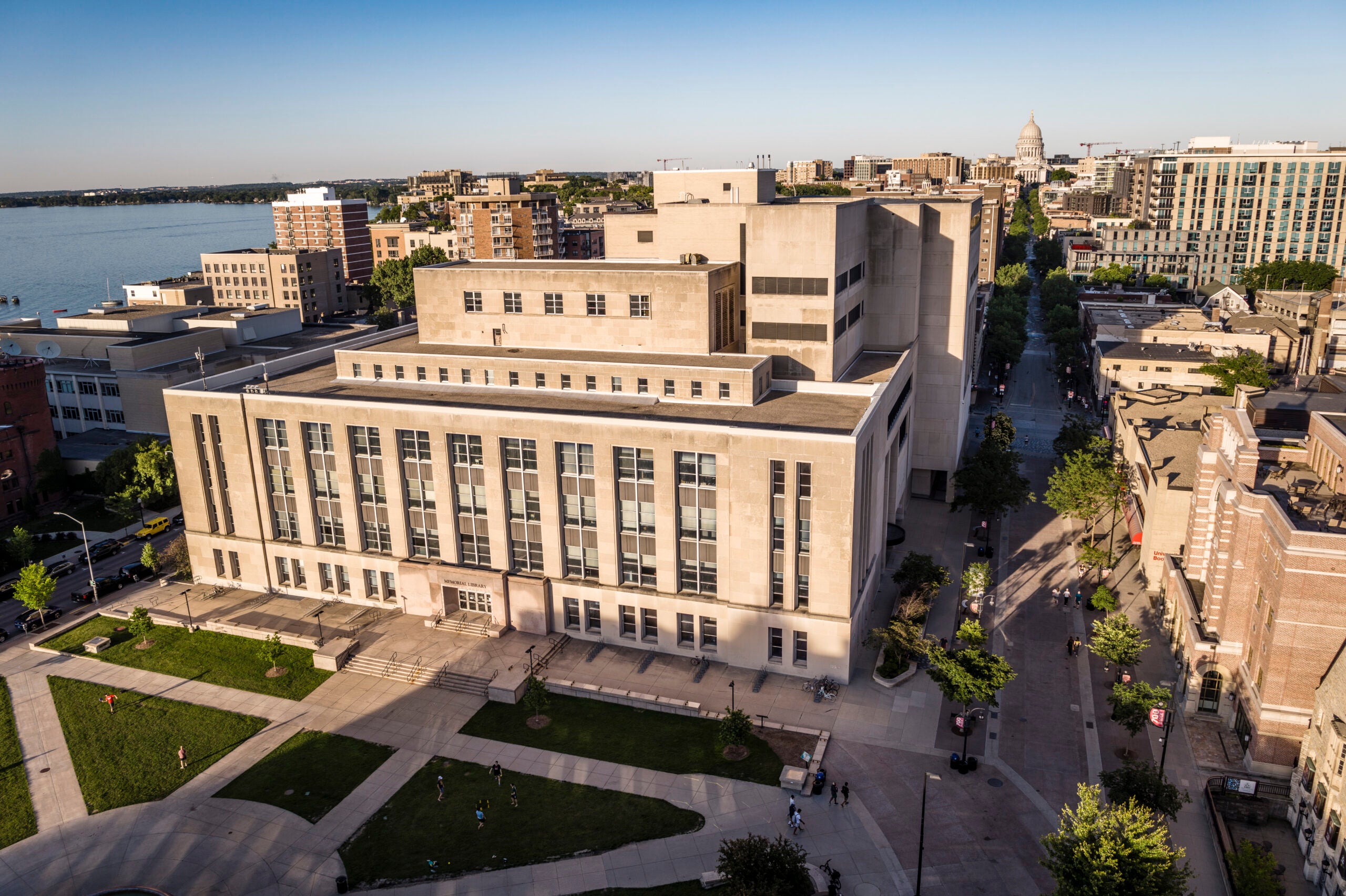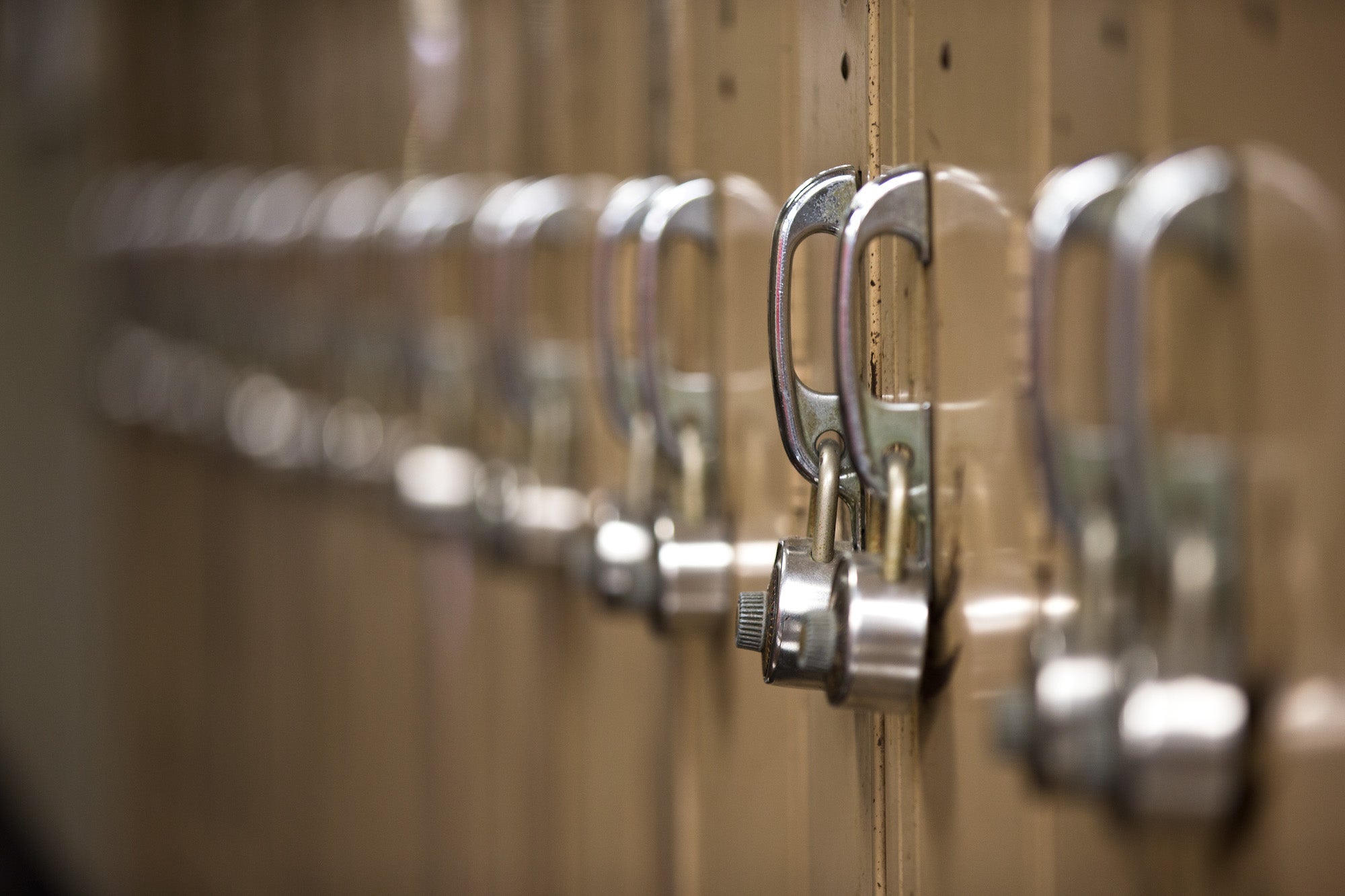Gov. Scott Walker introduced a state budget on Tuesday night that would lift the enrollment cap on private school vouchers and cut $300 million from the University of Wisconsin System — though his speech before the state Legislature made no mention of many other controversial items that he’s proposing.
Walker would keep property taxes and school funding largely flat, but he would cut funding for prisons and public broadcasting and cut jobs throughout state government.
This will be the third budget in a row where Walker has expanded publicly funded private school vouchers. Walker’s first budget as governor expanded vouchers in Milwaukee and Racine. His last budget expanded them statewide with a 1,000-student enrollment cap. The budget that he unveiled in his speech would take yet another the next step and lift the enrollment cap altogether.
News with a little more humanity
WPR’s “Wisconsin Today” newsletter keeps you connected to the state you love without feeling overwhelmed. No paywall. No agenda. No corporate filter.
“You see, every child deserves the chance to succeed,” he said.
As he first hinted last week, Walker would spin off the UW System into a new “UW Authority” with more freedom to set its own budget. The change would affect 35,000 UW employees, though the Walker administration said they’d still receive the same benefits that they do now. The governor called it a “bold” reform, echoing language that he’s been using in the early stages of his possible presidential bid.
“As the father of a UW student, I have a real interest in the success of our state university system. And I believe that this will make the University of Wisconsin System stronger in the years to come,” he said.
Walker didn’t mention the $300 million cut that he’s proposed for the UW System. He also didn’t discuss a $146 million reduction for the state Department of Corrections or a more than $5 million cut to the Education and Communications Board, which helps fund Wisconsin Public Radio and Wisconsin Public Television.
Walker did promote his plan to require drug testing of people who receive a variety of public aid, from jobless benefits to FoodShare.
“For those who fail, we will provide treatment so we can get them off of drugs,” he said.
He also talked about a projected property tax cut in his budget.
“Just as I promised, property taxes by the end of 2016 will be lower than they were in 2014. That means lower property tax bills for six years in a row. How about that?” he said.
The Walker administration said the tax cut would amount to $5 per year on the median-valued home.
Assembly Democratic Minority Leader Peter Barca pointed out that Walker was forced to cut his budget at a time when other states were dealing with budget surpluses.
“You can see that the Walker trickle-down theory clearly is not working,” Barca said. “And my prediction is two years from now, we will either be in equal or even a worse mess than we are now.”
Democrats are all but helpless to stop Walker’s agenda, though majority Republicans indicated there were some pieces that concerned them. Assembly Speaker Robin Vos listed a few, including Walker’s public school budget.
“I think there are going to be people who have concerns that the first year actually reduces spending,” Vos said.
Vos also said many Republicans had problems with the way Walker’s budget would borrow $1.3 billion to pay for roads.
“Our caucus has discussed it and we have sincere concerns about relying so heavily on borrowing to fund transportation and infrastructure,” Vos said.
He said another piece of Walker’s budget that would effectively end land stewardship purchases until the year 2028 wasn’t acceptable.
“I know that there is a lot of concerns about the state just buying vast tracts of land. But, where I live in southeast Wisconsin, there’s a lot of development pressure,” he said.
In addition to halting stewardship purchases, Walker would cut DNR scientist positions and gut the power of the state’s Natural Resources Board. Those changes and others are now in lawmakers hands.
The Legislature’s Joint Finance Committee hopes to start voting on the budget in April.
Editor’s Note: Wisconsin Public Radio and WPR.org is a service of the Wisconsin Educational Communications Board and the University of Wisconsin-Extension.
Wisconsin Public Radio, © Copyright 2026, Board of Regents of the University of Wisconsin System and Wisconsin Educational Communications Board.






